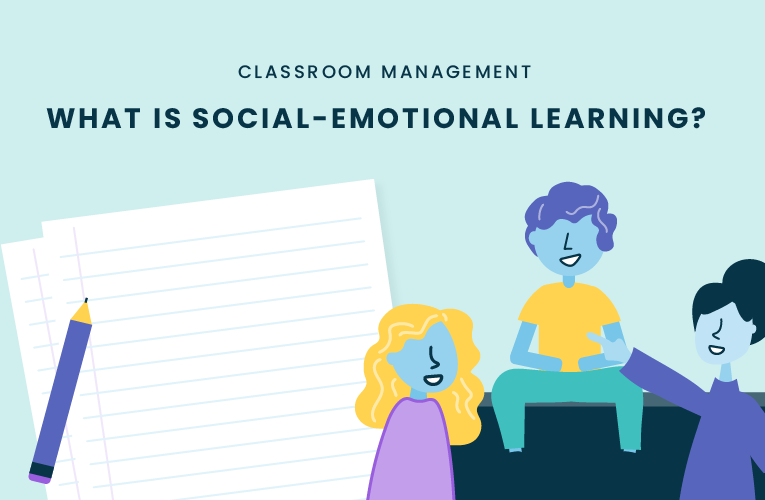Oftentimes the focus in the classroom is on learning a specific lesson, subject, or topic as outlined in the curriculum which leads important skills like social-emotional learning to be overlooked. The importance of a student to have the ability to express their emotions as well as understand others is especially crucial in the growth of a student academically and socially. We recently had a conversation with Dr. Marcia Tate, to find out what social-emotional learning is and why it is so important for education.
A Definition for Social-Emotional Learning
Social-emotional learning is exactly what it sounds like. The ability to understand your own feelings and the feelings of others to know how to react in specific settings.
Casel.org defines social-emotional learning as, “the process through which children and adults understand and manage emotions, set and achieve positive goals, feel and show empathy for others, establish and maintain positive relationships, and make responsible decisions.” It is knowing when to talk when to be quiet, when to listen, and what to say and do.
Social-emotional learning provides students with the ability to have emotional intelligence and empathize with others to build strong relationships. Those who invest in social-emotional learning are able to not only leverage it at the moment but also use it to lead others on a meaningful course.
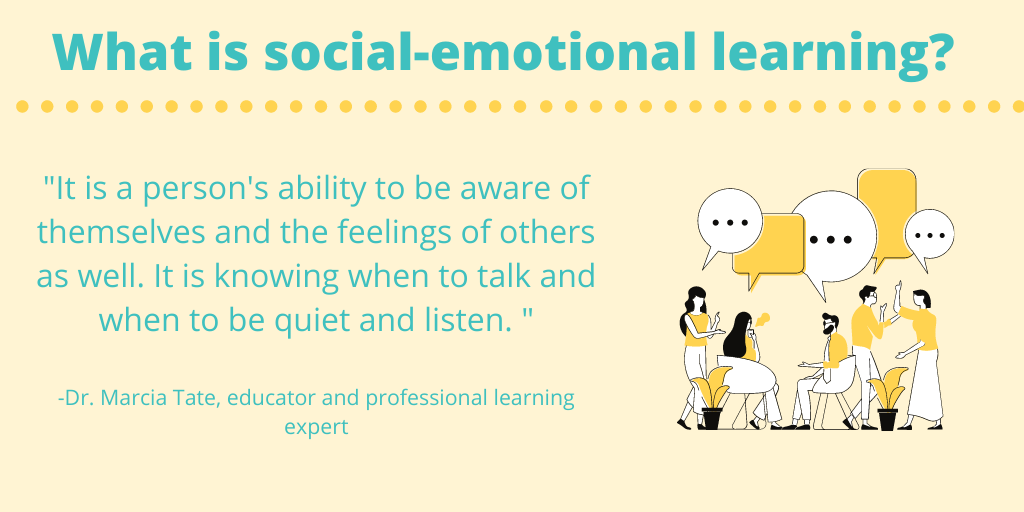
Having a grasp on social-emotional learning and being exposed to it at a young age sets students up for a healthier lifestyle and healthier relationships.
The Importance of Social-Emotional Learning
Social-emotional learning isn’t something that is completely compatible with the new age of blended learning. Marcia shared that she is fearful that if we begin to do everything individually, we will not be able to develop those social and emotional skills that we need, to know how to respond to and interact with people.
Social-emotional learning cannot be learned if another party is not involved. While with virtual learning you are still able to connect and interact with another person, the interaction is not as authentic as an in-person interaction for many reasons. One reason being that body language is an important way people nonverbally communicate, and without the in-person interaction, the physical connection is lost. Teachers shouldn’t want students to do everything individually, because then they will not develop the social-emotional skills that are critical to thriving with others.
Marcia sees students who don’t ever get the opportunity to develop their social-emotional skills because they did not have the advantage of working in groups or on group projects. One of the most important sets of skills for the working world is interpersonal skills – the ability to be able to work on a team with diverse people and get a finished product out the door or work on a project.
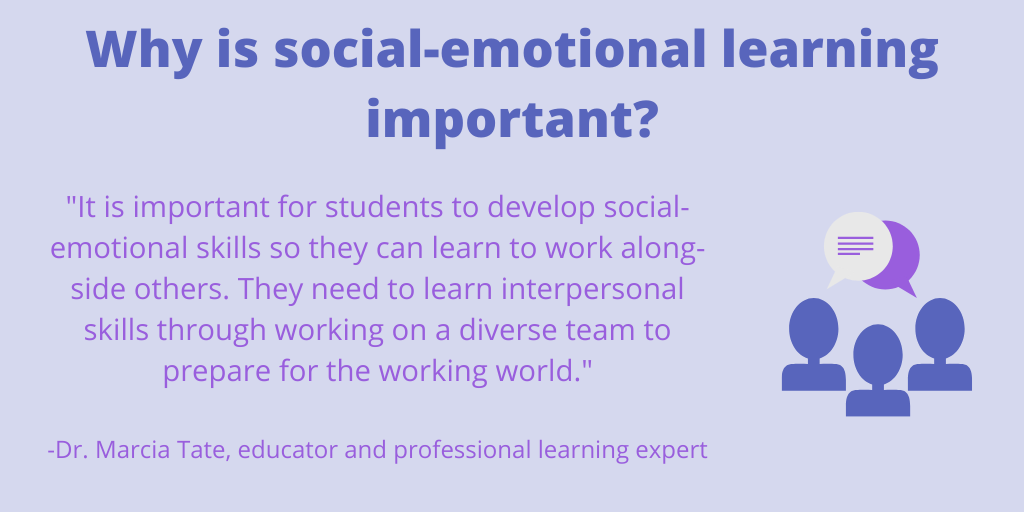
To combat this, Marcia explained 4 areas students have to master for the best social and emotional intelligence.
1. Self-awareness
The main reason for self-awareness is to increase one’s self-confidence. When students understand that they have flaws and that’s okay they are able to build stronger relationships with people who understand and love their flaws.Verywellmind.com states, “While self-awareness is something that is central to who you are, it is not something that you are acutely focused on at every moment of every day. Instead, self-awareness becomes woven into the fabric of who you are and emerges at different points depending on the situation and your personality.
2. Self-management
Overall self-management is the ability to have self-control and to realign your wants/needs when necessary. Indeed.com stated, “Self-management skills allow you to maximize your productivity, improve your workplace performance, and efficiently achieve professional goals. Improving your self-management skills can help you increase your employability and better manage your career path.
3. Social awareness
MindValley describes social awareness as, “having an in-depth understanding of societal and communal set-ups, environments, problems, struggles, norms, and cultures.” Essentially knowing your surroundings and the overall ‘vibe’ of the environment. Most importantly the ability to show empathy for others
4. Relationship management
Maintaining positive and healthy relationships is a huge part of one’s overall well being. A support system is crucial for desperate times and without strong relationships, the support system disappears. A way Marcia shows support and maintains positive relationships with her students is by greeting each student individually. Pre-COVID, she realized that a lot of middle and high school students don’t know how to shake your hand firmly, maintain eye contact, and greet them. Students are learning and they don’t even realize it!
Listen to the full conversation with Dr. Marcia Tate on our Tackling Tech Podcast!
[/et_pb_text]On this episode of Tackling Tech Podcast, powered by Dyknow, Brett McGrath talks with Dr. Marcia Tate, bestselling author of “Worksheets Don’t Grow Dendrites 20 Instructional Strategies to Engage the Brain.” These brain-based strategies include drawing, discussion, movement, and storytelling, and are backed by extensive research and science and encourages social-emotional learning.
Start teaching confidently with Dyknow for free!
Latest blog articles
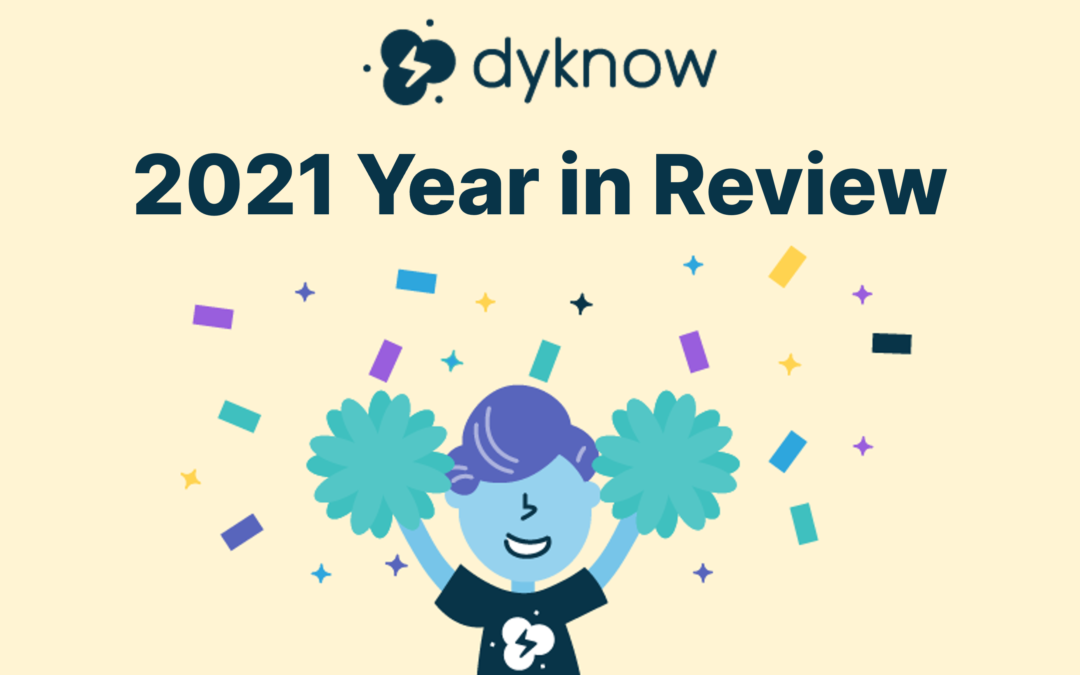
Dyknow 2021 Year In Review
In addition to web browser updates and bug fixes, Dyknow released several major product updates, new features and enhancements. Check out Dyknow’s 2021 Year in Review!
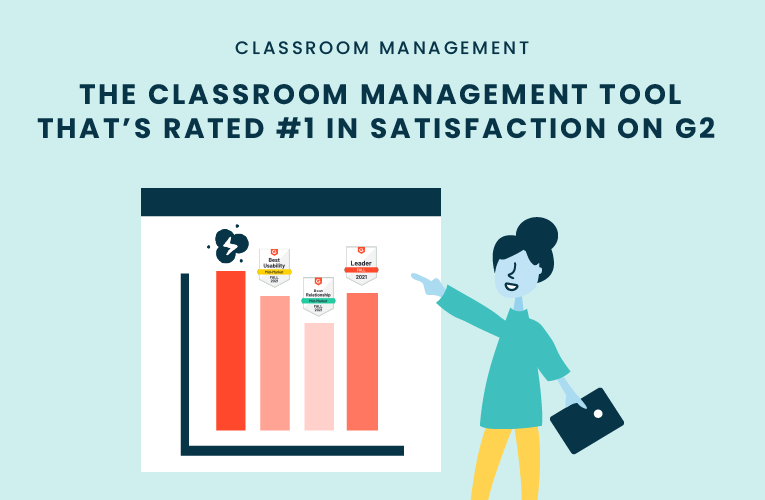
The Classroom Management Tool that’s Rated #1 in Satisfaction on G2
K-12 Administrators across the world trust G2 as the #1 platform to find, research, and choose EdTech tools that solve the most pressing problems their teachers are experiencing. In G2's Fall 2021 Reports, Dyknow was once again rated #1 in overall Satisfaction out of...
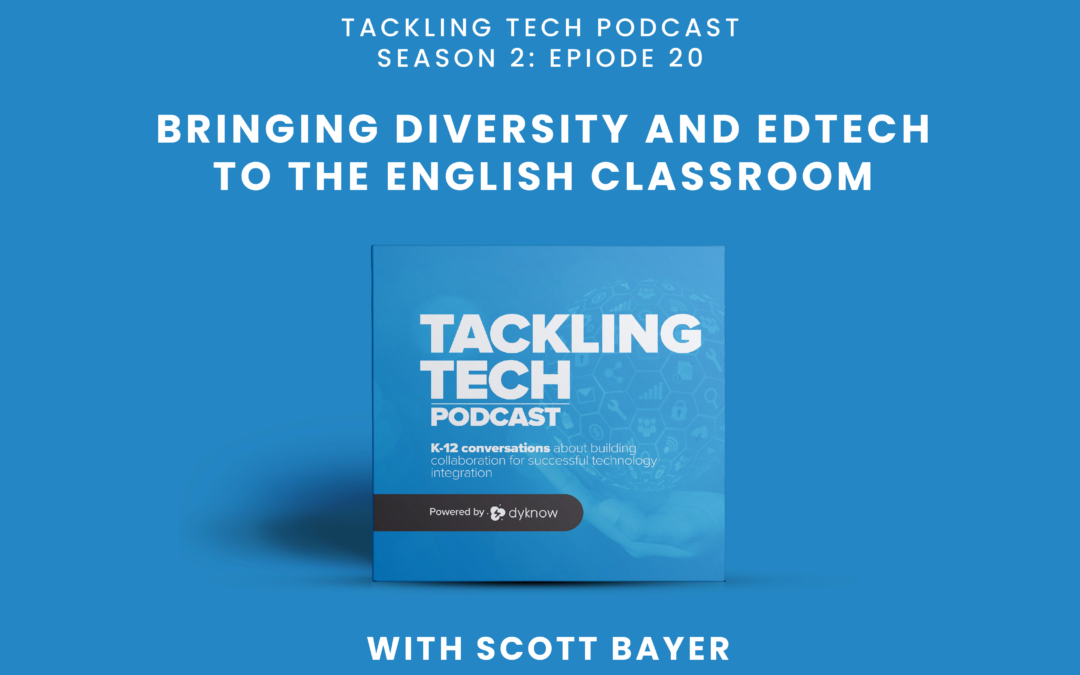
Bringing Diversity and EdTech to the English Classroom
On this episode of Tackling Tech, Tierra Leustig interviews Scott Bayer about being an anti-racist teacher, diversifying reading lists, creating inclusive learning environments, and leveraging ed-tech in non-technical ELA classrooms. Scott Bayer is a High School...

